Crafting an apology letter to a teacher can feel daunting, but it's an important step in expressing your regret and taking responsibility for your actions. Whether you've missed a deadline, disrupted class, or simply need to say sorry for any misunderstanding, a heartfelt letter can help mend the relationship. It's all about being sincere and showing that you value their role in your education. So, if you're ready to learn how to effectively communicate your apology, keep reading for a handy template and tips!

Address and Greeting
Apologies can be an essential part of maintaining a healthy student-teacher relationship. When crafting an apology to a teacher, it is critical to consider a structured approach. Begin with the proper address, using the teacher's title, such as "Dear Mr. Smith" or "Dear Mrs. Johnson," followed by a respectful tone that acknowledges their role in your education. Include the date at the top to provide context, along with a courteous opening. Demonstrating sincerity and respect in the greeting emphasizes the gravity of the apology while fostering a positive atmosphere for resolution.
Expression of Regret
Apologizing to a teacher requires a sincere expression of regret and acknowledgment of any mistakes made. When crafting your message, focus on the specific actions that warranted the apology, the impact on the learning environment, and the commitment to improve moving forward. Highlight the importance of the teacher-student relationship and convey a deep appreciation for the teacher's efforts. This thoughtful approach will emphasize the seriousness of your apology and the desire for reconciliation.
Acknowledgment of Mistake
When acknowledging a mistake, it is important to clearly express regret and take responsibility for the actions. Recognizing the specific error, such as submitting an assignment late or not following classroom rules, emphasizes understanding of the situation. Providing context, like the reason for the oversight, may also be helpful, while ensuring it does not sound like an excuse. The emotional impact of disappointing a respected teacher often enhances the sincerity of the apology, demonstrating growth and commitment to improvement in future endeavors.
Plan for Improvement
A plan for improvement is essential after acknowledging a lapse in behavior or performance in an academic setting. Actionable steps can include attending additional tutoring sessions to enhance subject comprehension, such as mathematics or science, which enables a firmer grasp on fundamental concepts. Creating a structured study schedule that allocates study time for each subject, such as history, language arts, or foreign languages, helps foster better time management. Engaging in open dialogues with the teacher, perhaps during office hours, can provide insight into areas needing focus and guidance. Additionally, setting measurable goals for each assignment or project, such as aiming for a specific grade percentage, promotes accountability and motivation. Lastly, maintaining a reflective journal to document progress and challenges fosters self-awareness and promotes a continuous improvement mindset throughout the academic journey.
Closing and Signature
In closing, I appreciate your understanding and patience regarding this matter. I sincerely hope to demonstrate my commitment to learning and improving in the future. Thank you for your guidance and support. Sincerely, [Your Name] [Your Class/Grade] [Date]
Letter Template For Apologizing To A Teacher Samples
Letter template of sincere apology to a teacher for homework negligence.
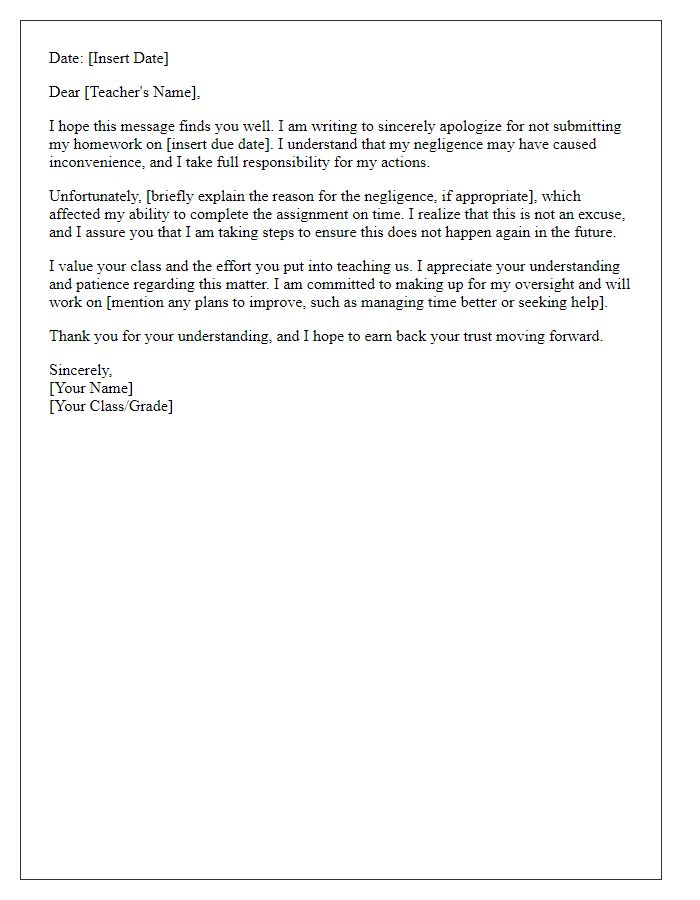
Letter template of formal apology to a teacher for classroom disruption.
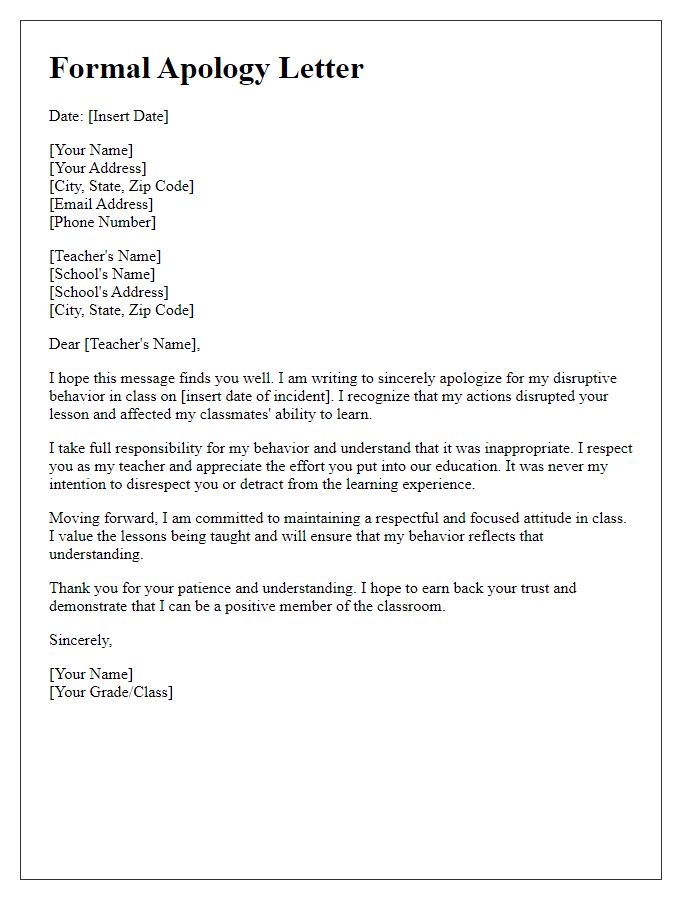
Letter template of heartfelt apology to a teacher for late assignment submission.
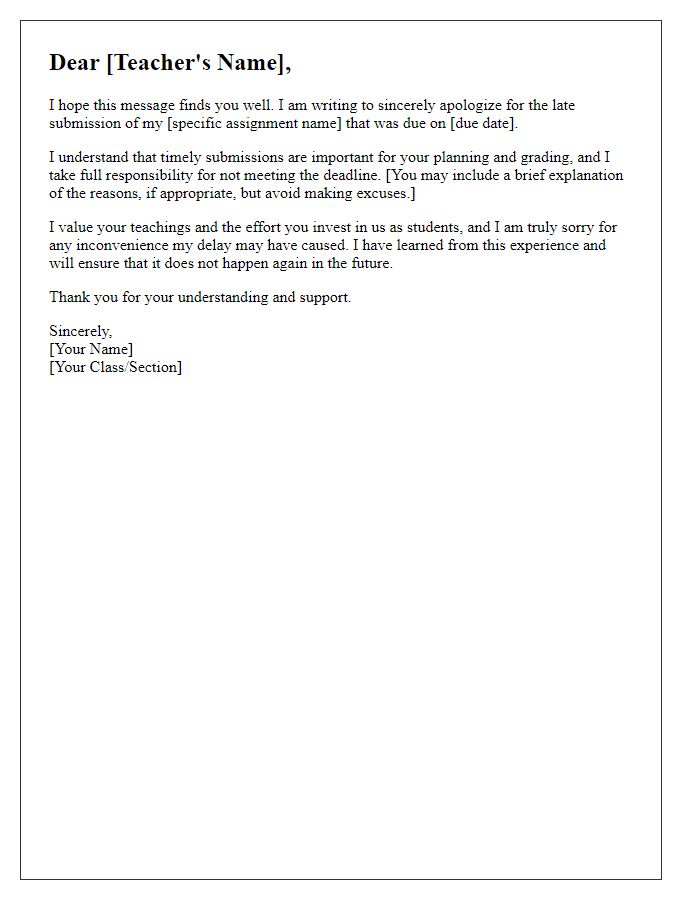
Letter template of regretful apology to a teacher for disrespectful behavior.
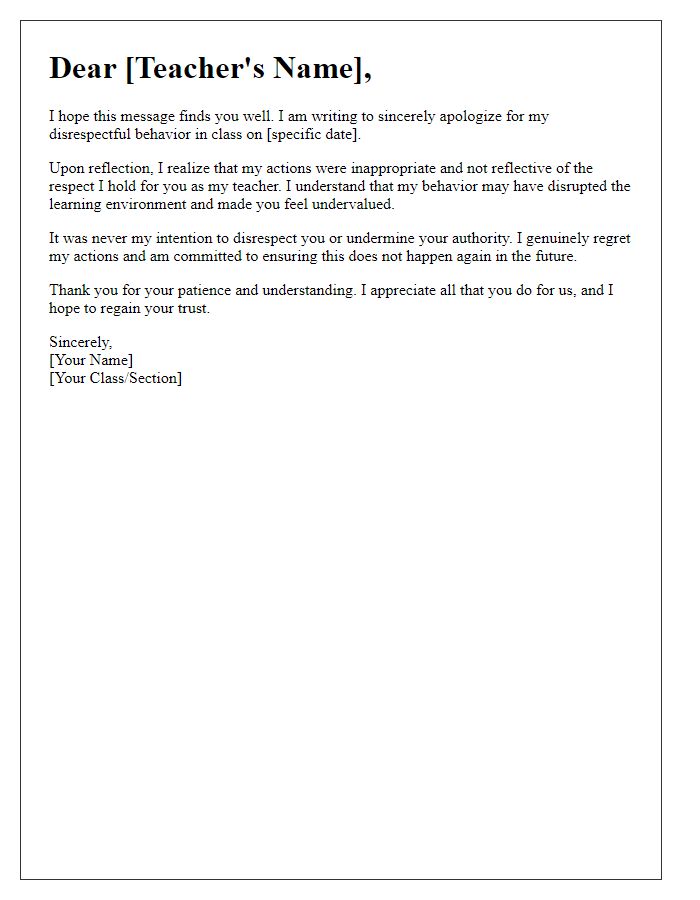
Letter template of contrite apology to a teacher for misunderstanding instructions.
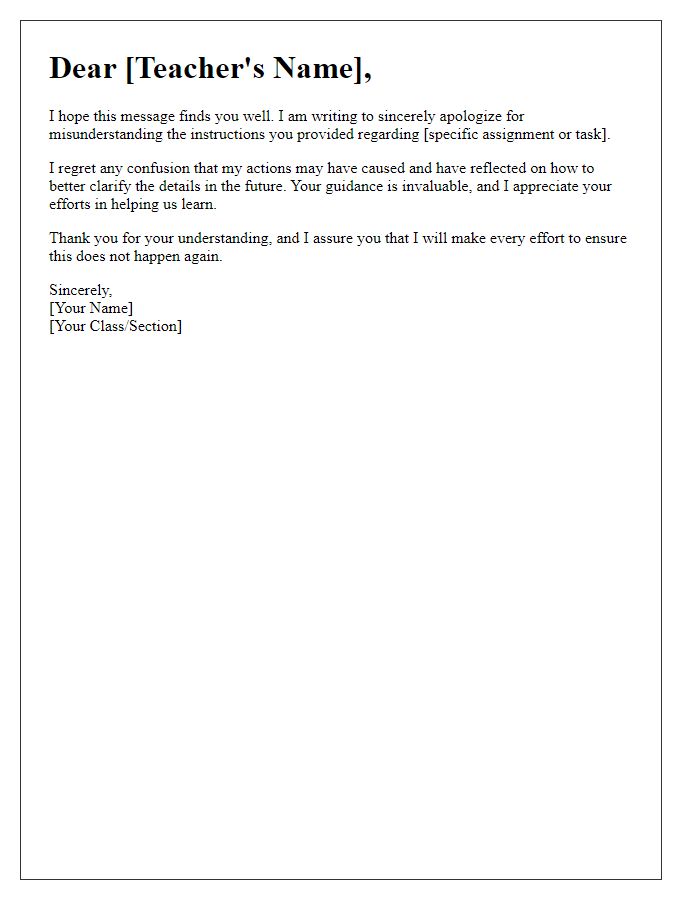
Letter template of acknowledging mistake to a teacher for undermining authority.
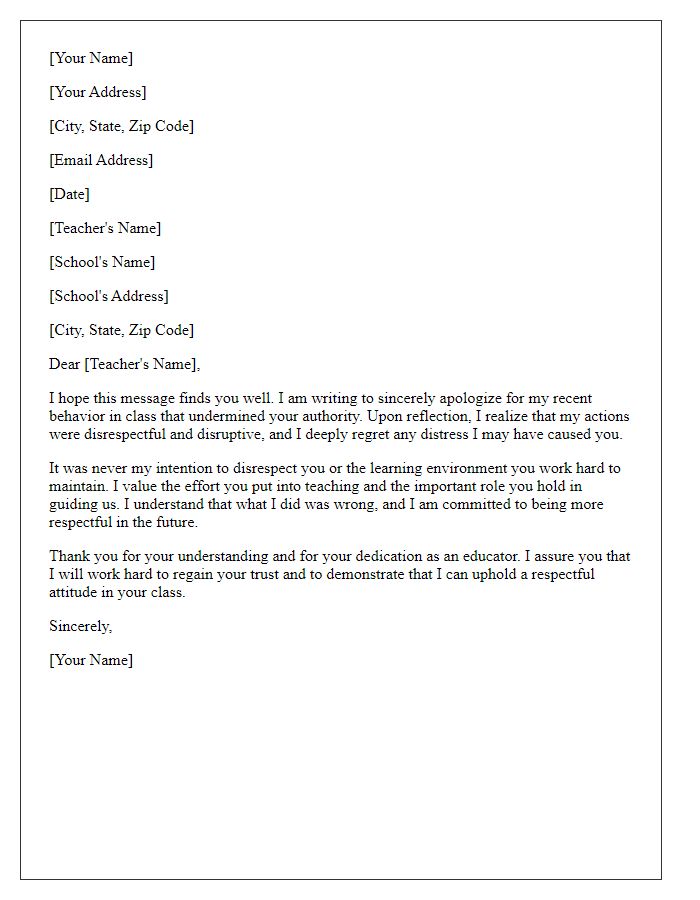
Letter template of proactive apology to a teacher for not contributing in group work.
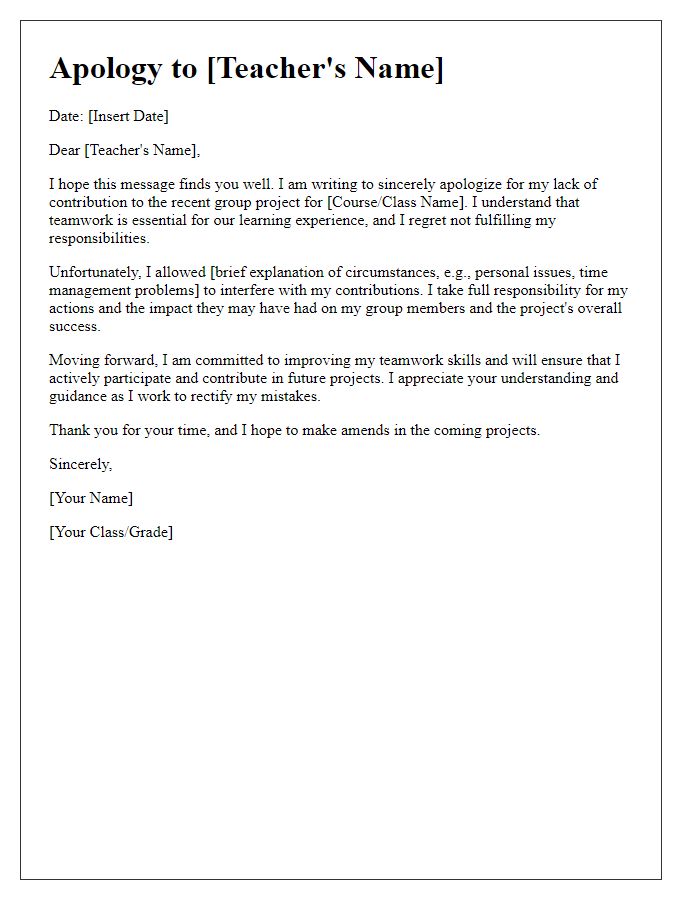
Letter template of humble apology to a teacher for inappropriate remarks.
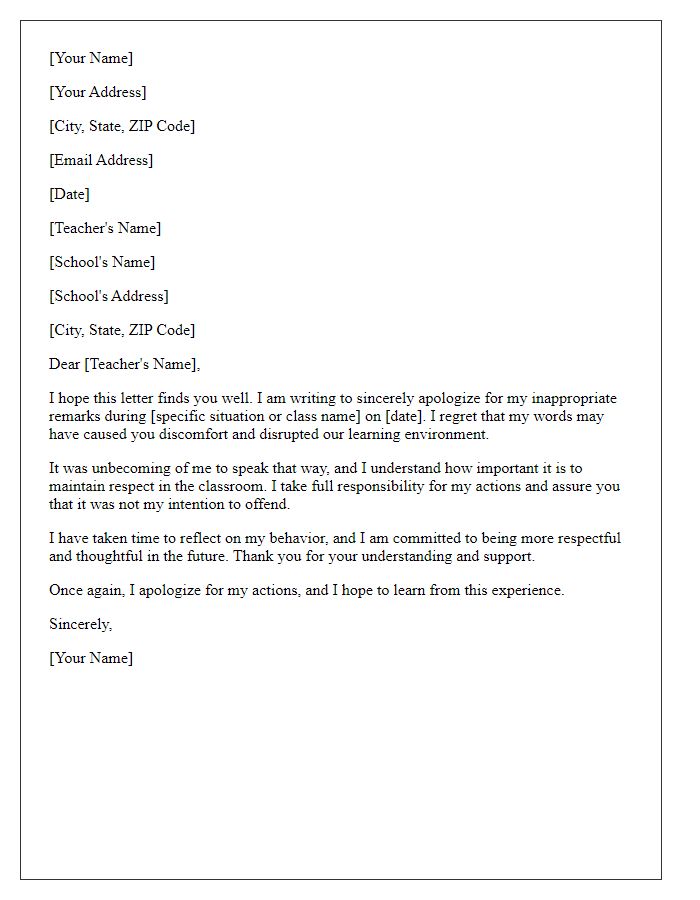

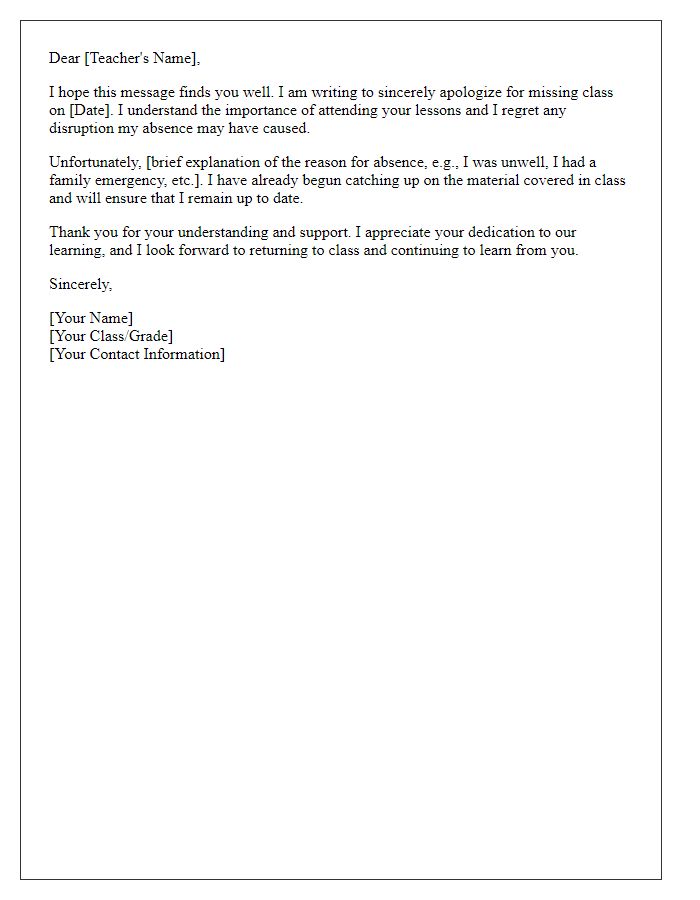
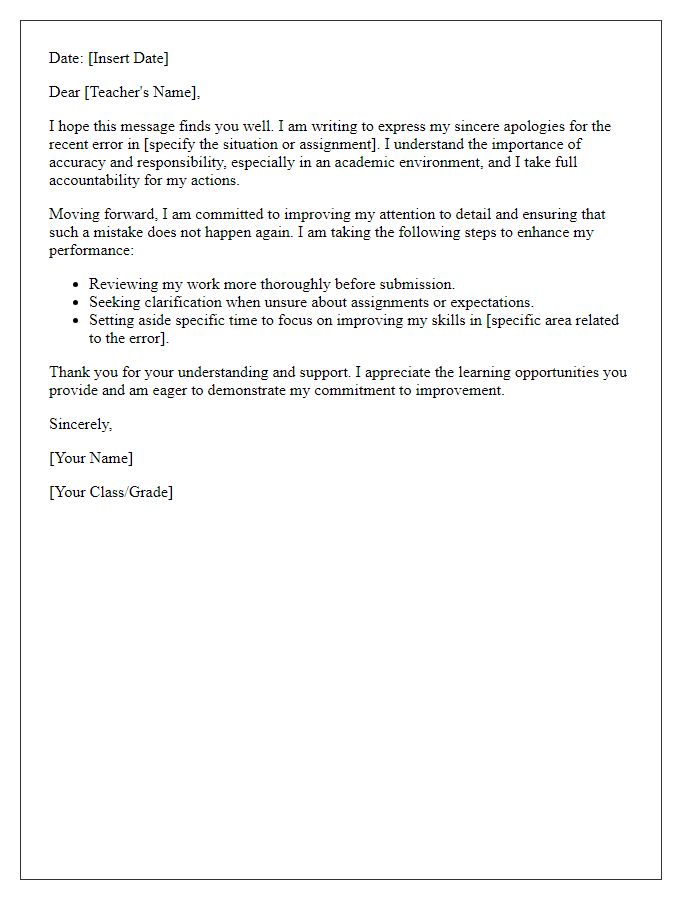

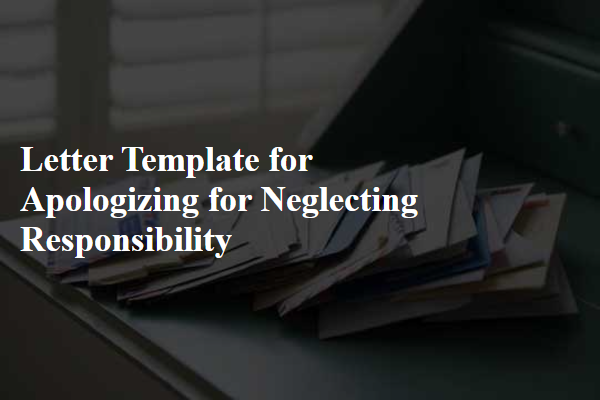
Comments